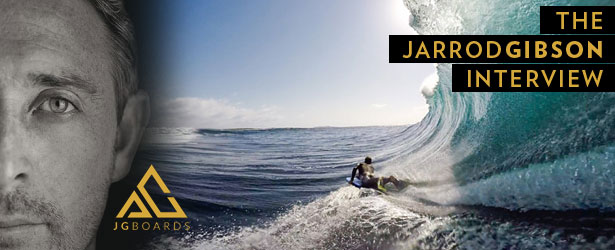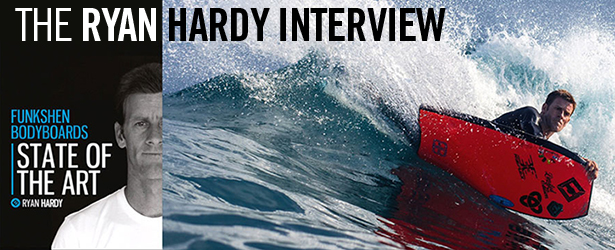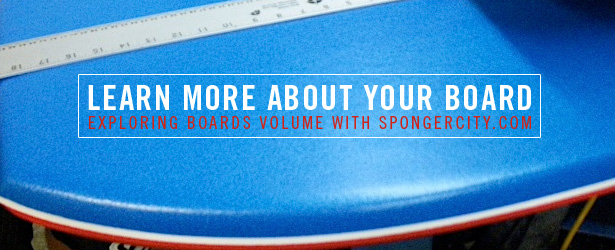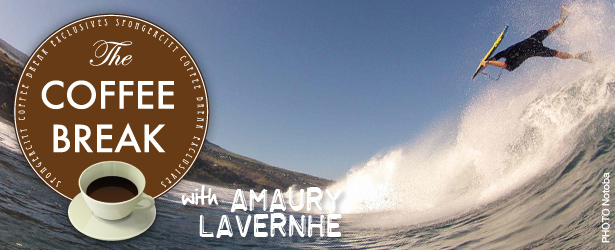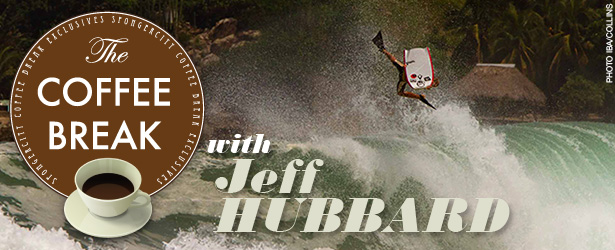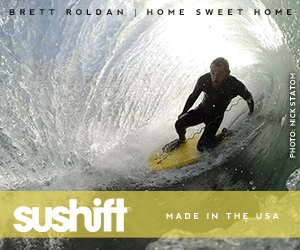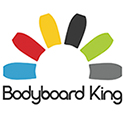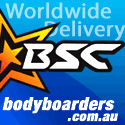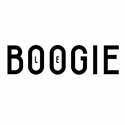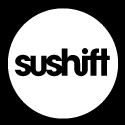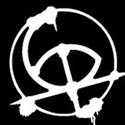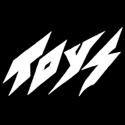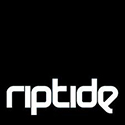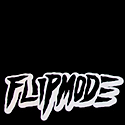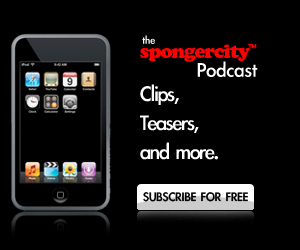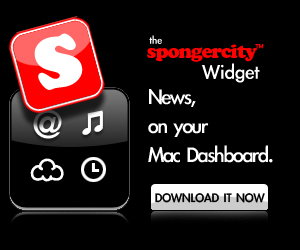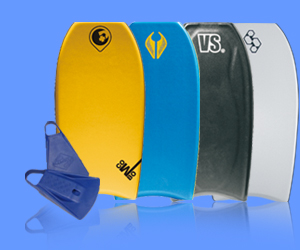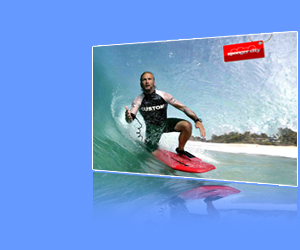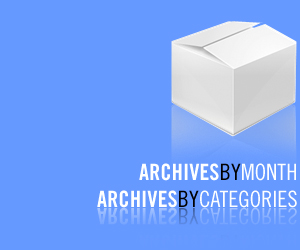January 10, 2006 at 5:49 pm | Spongercity Interviews News
Spongercity INTERVIEW with NICK”MEZ”MESRITZ

INTERVIEW done in January 2006 – 20 Questions with Nick Mesritz aka MEZ
Nick Mesritz has been shaping boards for more than 15 years and is now running one of the biggest bodyboard factory out there as well as his own label : NMD (Nick Mesritz Design). Nick is kind of a guru shaping-wise and a wise man business-wise. His experience in the boogiboard industry and his skills in the shaping room are great. This is the longest interview i’ve made so far, and it’s quite rare actually to get to interview Mez coz’ he is such a busy man. Mez took the time to answer my questions thoroughly and if you wanna know how a good board is shaped or what’s going on in the boogie industry today it right here :
1. Hey wassup Nick ? Where are you right now ? What are you up to ?
I just flew back to Indonesia tonight after a good Christmas holiday with my family in Australia. Back to work at the factory tomorrow.
2. First of all can you tell us how you ended up being one of the most famous shaper out there these days ? What’s your background ? How did you get into shaping ?
I guess a lot has to do with luck, plus heaps of hard work and long hours. I have been fortunate to work with legends like Mike Stewart, Ben Severson and Jack Lindholm and also modern day versions such as Ben Player, Dave Winchester and Andre Botha. These guys all know what works and Mike especially, has been great to bounce design and construction theories off. I got into shaping by working my way through several factories from my start in the Broady factory in New Zealand, to running Rheo in Aus, then working with Buzz and the Toobs team in Cali, back to Aus to set up Mez customs and Toobs Australia, Morey with Broady again in NZ and now I live between Indo and Aus. It’s all been an amazing trip and learning experience. All along the way I worked with the industries best shapers and the sports best riders, which has defined my ability and refined my skills. I don’t know about being famous, but now that I’m an old man, I guess enough people have heard my name to recognise who I am  .
.
3. NMD has a solid reputation all around the globe and a solid team now but i guess it wasnt easy to built your own brand, what does it take to build one’s board brand and make things happen ? As the history of our sport shows it’s not just marketing and team riders that make a good brand even when the products are good…
I had been making other peoples brands for long enough and I always wanted my own label, so NMD was a natural progression. By knowing the history of most of the bigger companies, I could see what I needed to do to hopefully succeed and what I needed to be careful to avoid. Basically learning from other peoples mistakes and triumphs. I think I also have a distinct advantage in that I am still involved, and oversee, the day to day production of my boards. There is so much that goes into keeping the brand fresh, its not just materials and designs, but the graphic aesthetics of the branding and packaging is very important. Then you’ve got marketing through team riders and magazine exposure. It’s full on, but also fun.
4. What does it take to be a good shaper ? You learned all the basics with Buzz from Toobs. What did he teach you ? Toobs pretty much set the standards of todays shaping – all good shapers learned with Toobs or 4play pretty much but very few people know it. What makes your shaping method one of the most effective design-wise and quality-wise ?
Buzz Morasca is the one who showed me how to actually custom shape a bodyboard, designed most of the machines and laminators I use and taught me all about materials and their interactions with other materials during both fabrication and actual surfing. He’s a bloody genius! Both Brian Peterson and I worked for Buzz in the early 90’s and from there went on to spread the love. Brian headed production for EBW making the initial Science boards, then started Vortex. I went back to Australia and started up Mez Boards, which included my custom business and stock Toobs and Quik production. I had a falling out with my partners and I left to head design at Morey. Both Todd (Quigley) and Jarrod (Gibson) were working with me before the 4Play brand was launched, with Todd learning the Buzz method directly from me and in turn, teaching Jarrod. in reality, 4play is simply a brand and now that its owned by Manta, it no longer has any physical connection with Buzz methodology or his manufacturing techniques. As for the actual shaping method and its effectiveness; the cutting process is quite simple, and can be repeated time after time to produce accurate templates. Its the lamination that’s the real skill. With Buzz’s laminators, you can calibrate the rockers during both slick and deck applications, which allows you to build tension into the board. One of the reasons why a flat board works best, is because it has optimum balance between the deck skin and the slick skin. When you laminate a board, you apply the slick skin first and the combination of heat and pressure causes the core to form negative or reverse rocker. The same thing happens when you laminate the deck skin, this time causing positive rocker. When they are balanced, the final board rocker is almost flat and the positive deck rocker is equal to that of the negative slick skin rocker. The net effect of this is that the board has built in tension caused by the opposing forces of the deck and slick skin. This gives the board awesome recoil and projection properties. There are a few other things, but those are trade secrets. As for board quality, I believe that simply comes down to materials and machinery, and I use the best I can at all times.
5. Do you still surf as much as you want to ?
I have a young family in Australia and Indonesia is not the safest place at the moment, so I travel backwards and forwards between Indo and Aussie. Also, the factory I run in Indo has been growing like crazy over the last 4 years and the more work we do, the less surf time I get. As a result, I only got in the water 6 times last year. I hope to surf a lot more in 2006 !
6. Do you test a lot of things in the water or do you leave the test thing to the team riders ?
I mainly leave this to Ben and Winny, but sometimes its hard to get them to try the stranger designs. I also use the groms on the NMD team to try new ideas, as they tend to have an unbiased opinion on things..
7. What’s your board right now ? (precise dimensions / materials – stringers or not – PP or PE etc…) Are you picky for your own boards ? have you got any little things you like specifically ?
I’m a big guy (186cm and 105kg) so I need a thicker board for my weight. My current board is Nose : 12.75″ – Width: 22″ – DFN: 19″ – Tail: 18.75″ – Length: 43″ – 51mm PP Core, Surlyn Slick, Sealed Air Deck and Rails, Bat Tail,12″ long x 3.25″ wide Graduated Channels, Nose Bulbs, Double Stringer, Concave, IXLPE Nose and Tail Bumpers. It’s finishes out at @ 58mm thick, which works well for me. I like simple shapes, so there’s nothing too tricky going on. I am trying out a concave hull, Ben’s been riding them for the 1.5 years and Kingy swears by them. Though I haven’t had any really good surf to test it out in yet.
8. Ben Player who rides for NMD just won the ultimate title, he’s the world champ,that’s awesome. Did you throw a party with Benny ? How’s that, a world champ in your team ?
Yeah, I’m so stoked for Ben. It’s been awesome watching him grow. I was there when he went for his first photo shoot for Quik back when he was @ 14, and we lived in the same house during his 1st Hawaiian winter in 95/ 96. Since then we have both worked with Quiksilver, then Morey and finally he joined Crawley and I on NMD. During those 10 years we have both learnt so much working as a team and to see him take out the big one is just awesome ! We have a party planned for when he gets back to Aus and I am flying back to join in the fun, it’s going to be huge!
9. How do you come up with a Rider’s pro model ? Let’s say i’m Ben Player or Winny, i want a board and i have specific ideas on what i want – dimensions etc… What are the different steps to chose my model ? Do you refine little things until i find the board perfect ?
Ben and Winny ride boards that are quite similar. You will notice that most of the top Aussie pros, like Ben, Winny, Hardy and Rawlins all ride Sealed Air Deck, Surlyn Slick, Dow core, Crescent Tail, Channels and a Stringer. They all have subtle differences with their board dimensions, but the construction is virtually the same, which tells you that this material combo works well for all 4 of them. That doesn’t mean its going to work well for the average rider. These guys are mostly riding waves with real power, so they aren’t looking to generate speed as much as controlling it. The Dow combo allows them to do just that. When we make a pro model, we have to take into consideration that the boards need to work well in all conditions, not just 10 foot Pipe. Once we know what works, lets say for Winny, then we take a look at his actual board and see if it’s going to work for the masses. Sometimes it will, other times it wont. You have to remember too, that Winny has a number of different boards for various conditions. So, we take his most versatile template that works best in most waves and modify it so that it will work well for the average rider straight off the store shelf, but keeping it true to Winny’s actual board so that he could also ride it if he has to. It’s usually bullshit when companies say “this stock board is exactly the same as what our Pro Rider rides”.
10. Do the pros you work with know what they want or do you propose things ? also do the pros often change things on their boards and try new things or do they stick with what they like ?
Most know what they want, the Aussie’s have been getting customs from either myself, Todd or Jarrod for most of their carrers so they know what works for them. I do propose various features for them, or suggest dimensions if I feel they are getting to radical with their specs. I like to push them to try different things, otherwise we would never get progression. We both learn from each other and slight adjustments from year to year usually add up to big changes when you look back at what you were shaping, say 3 years ago.
11. Who’s the most picky team rider ? the most annoying one ?
Ben and Winny are pretty picky, but that’s not a bad thing. They know what they want and what they need to help them perform. They certainly keep me on my toes. The mosty annoying one doesn’t ride for me anymore, so someone else has to deal with his shit – ha ha ha !
12. What’s the typical Mez day ?
6am – 8am: Wake up to the sound of prayers (Indo is the largest muslim nation on earth and they prey 5 times a day). Eat some nasi goreng and then have my driver, Pak Mujab, drive me and Dan to the factory.
8am – 10am: Quick check of the morning’s e-mails and then a briefing on the previous day’s production with my production supervisors. Then a rundown of new orders, shipments due to go out and outstanding orders plus any pending issues that need my attention. Then its time to reply to the e-mails.
10am – 12pm: Walk the factory floor, checking production quality etc. More e-mails and check material stock control.
12pm – 1pm: Lunch, more rice and unidentified meat substance.
1pm – 4pm: If there’s team customs on order, then you’ll find me in the air conditioned shaping bay. It’s 30-33 degrees celcius everyday in Indo, so the AC is a must. Otherwise its more office work.
4pm – 5pm: E-mails yet again. Another walk of the factory floor. Check with production plan for the following day then it’s home for dinner, or off to a movie (cheap in Indo @ 2 Euros) or off to the gym. Most free nights are spent designing NMD artwork etc.
10pm – 6am: Lights out.
13. The reasons are probably obvious for a lot of people who work in the BBIng industry but maybe not for the average 15 year old sponger: why did you chose to build your factory in Indo ? What are the advantages & drawbacks ?
We could no longer compete with Asian made boards and were pretty much forced to move offshore. We chose Indonesia because the business was basically going bankrupt in New Zealand and Indo offered us the benifits that go with manufacturing in Asia (cheaper labour, rent and quicker, more cost effective shipping for our raw materials, which are mostly made in Asia). When you are making a board for X and someone moves offshore and offers virtually the same board for half of X, then you will loose your business to the cheaper competitor every time. It’s sad, but very true. Either you stay where you are and go broke or move offshore and put yourself in a position to feed your family.
14. It seems that a lot of companies nowadays decided to either move their factory abroad / have their boards built by someone else or regroup their production with another brand. Do you think it’s a ‘normal’ evolution in the Bbing industry because you need to stay competitive? What’s your opinion ?
As with question 15, its getting harder and harder to keep production in places like Australia and the USA. Once the first real bodyboard brand moved their prodcution to Asia, then the writing was on the wall for the rest of us. I wouldn’t say its normal, but it is definatley a worldwide trend and is not limited to just bodyboards. Clothing, shoes, wetsuits and accesories. These are all made in Asia and most of this production was moved there way before the boards. I’ve seen two major Australian brands stay loyal and try to carry on their production in Australia, both have gone bankrupt and are now owned by someone else who has moved their production to Taiwan to remain competative. It comes down to price, and no matter how good your boards are, if you are even a few dollars higher than your competitors then you’re going to find it had to sell your product. Small, local factories with a solid custom program are the only ones that have a real chance to survive in Australia and the USA. They can keep their overheads low, as they are generally soul operators and don’t need massive amounts of factory space.
15. You’re in a more confortable position maybe because now a lot of brands come to you and ask you to build their boards. You build a lot of boards for famous brands, i dont know if we can name them in the interview though (let me know). How does it feel ?
I can’t name all the brands, but I am privilleged to be building boards for most of the top names in the Industry. They all push us to build better boards each and every year, which means that the riders are getting the benifits. Most of these companies come up with fresh design ideas and that also pushes our production capabilities, which is a good thing. You never want to get stale. Progression is the key.
16. Do you have your own little habbits compared to what you learned with Toobs ? Do you use any computer programs etc. to help you build perfect boards now ?
I pretty much still use the basic techniques Buzz taught me back in 94. There are little things, like the way I shape the channels and concave’s, which I do my own way and the way I finish-roll the open seams, but the bulk of my shapping habbits are Buzz-Tech. As for computer programs, all the stock boards we manufacture are shaped by a custom made robot profile machine. Its one of a kind and people trip out when they see it. Part of my job is to transfer the handshaped Master Boards into computer code and enter that into the computer. It’s a time consuming process to build the codes, but once that’s done, the robot can reproduce any specific template at the push of a button.
17. Do you wish you had another job sometimes ? What would you be doing if you werent a shaper ?
I wish I could still be in Aus fulltime, but I love my job. I guess if I wasn’t a shaper I would be a chef. I love to cook and that’s what I was going to do before I started making boogies.
18. What’s the craziest board you’ve ever shaped ?
Probably a giant board for my brother’s best friend. He is the captain of the New Zealand Basketball team and plays pro ball in Europe. He’s over 2 meters tall and weighs @ 140kgs. The board was massive and super thick. Almost 70mm finished. I shaped it with all the latest performance features and it looked just like a regular board, only super sized. He actually surfed on it too, which would have been quite a thing to see.
19. Ever thought about shaping a surfboard ?
Been there, but it didn’t interest me at the time. I have been thinking about shaping a few more sometime soon. Just to keep the mind fresh and test the shaping skills.
20. Who are the next wave of Shapers ?
There’s Todd and Jarrod @ QCD who are killing it down in Australia. Tully @ Function and Eddy @ Unknown make some great boards. Dan Sivess is an up and coming shaper who worked with me In NZ and has been here in Indo for the past 4 years running the production with me. He’s shaping all the HB team boards and some of my NMD’s too. Definitely one to look out for in the future. I know Brian Peterson has a couple of protégés under his wing @ Vortex and I’ve seen a couple of nice Primo boards from France. Rossi rules it in South Africa and PMA is still going strong in Cali. I think the riders are in good hands for a while yet.
THANX A LOT MEZ – Theo – Spongercity.com

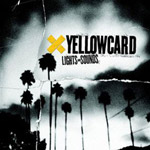 Style : Pop punk
Style : Pop punk
